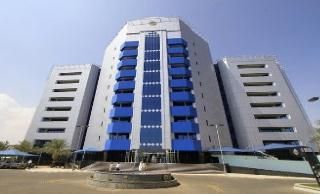FEATURE: Sudanese pound slides to new lows despite Arab Gulf deposits
August 16, 2015 (KHARTOUM) — The U.S. dollar skyrocketed against the Sudanese pound in the black market and is now trading at 9.85 compared to 9.50 pounds on August 10.

“The price today was not expected at all, at least during this period,” said one trader who asked to be identified only by his first name of Omer.
Omer noted that large quantities of U.S. dollars are traded at a slightly higher rate of 9.90 pounds.
The official exchange rate is around 6.1 pounds.
Several small traders asserted that the price is controlled by a handful of currency speculators even though they acknowledged that supply and demand remained the key factor in determining the exchange rate.
They projected the exchange rate to surpass 10 pounds owing to dollar scarcity and growing demand in the Sudanese market.
This comes days after the Sudanese government reported the receipt of $1 billion dollar Forex deposit from Saudi Arabia over the last two months though the terms were not disclosed and Riyadh has yet to corroborate Khartoum’s announcement.
Sudanese officials have repeatedly announced that received foreign Forex deposits over the last few years with some critics alleging that the government is deliberately lying to scare black market traders into selling their dollar holdings to bring prices down.
One of the top black market traders who asked for anonymity blamed the Bank of Sudan for its stringent requirements relating to letters of credits which he said is pushing businesses to seek hard currency outside the formal market.
He stressed that the number of major currency speculators on the market does not exceed 15 and that most of them are known to the economic security division at the National Intelligence and Security Services (NISS).
But they explained that the NISS turns a blind eye to them to avoid disrupting the Forex market and creating chaos resulting from dollar scarcity.
FOREX BUREAUS IGNORING CENTRAL BANK DIRECTIVES
The Forex bureaus are also operating in violation of the central bank rules and are trading in black market prices.
One of the bureau owners who also asked for anonymity said that “we get small amounts of Forex from the Bank of Sudan and in many cases it is not available so we buy from the black market and sell like others”.
He explained that they previously used to receive $50,000 a day from the central bank while some bureaus with connections to government officials are able to get up to $100,000 per day.
But their purchases were curtailed to $10,000 and in some days no dollars are made available.
Some Forex bureaus in the Sudanese capital of Khartoum are run by nationals of a nearby African country and are active in informal foreign currency transfers.
BAN ON BANK TRANSFERS
According to experts, the ban on bank transfers in dollars as a result of US economic sanctions contributed significantly to the rise in the exchange rate as it created a scarcity of supply and more channels parallel to the banking system.
One of the businessmen told Sudan Tribune that he along with others “devised a new way which is to pay currency traders the amount in pounds in Khartoum and receive the equivalent in dollar anywhere in the world”.
But he noted that the exchange rate in this case is higher adding that “we have no other choice”.
GOVERNMENT IS THE LARGEST BUYER
Sudanese economists stress that the government is the largest buyer of the dollar from the black market including the central bank and other government institutions.
“The government has lost most of the resources which provide hard currency. Their dependence on gold does not cover even 30% of the [import] needs such as gasoline, wheat and drugs” one of them said.
MORE INFLATION COMING
Businessmen said that the market is directly affected by the exchange rate with rising price of commodities whether imported or domestic.
They complained that high prices mean recession and snag in already low consumer demand.
They pointed out that prices did not rise directly out of fear of a recession but they will go up in a matter of weeks as soon as new goods enter the market.
Experts fear that the government is moving to further lift subsidies on goods which they said is inevitable because of continued economic crisis which restricted venues of national income after the secession of oil-rich south in 2011 as well as armed conflict that erupted there which affected oil production.
(ST)
